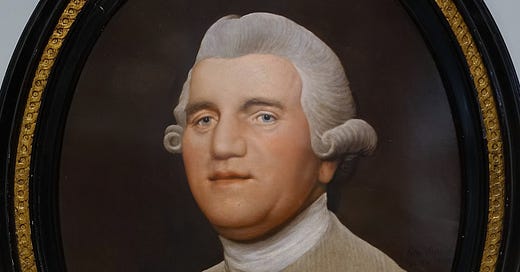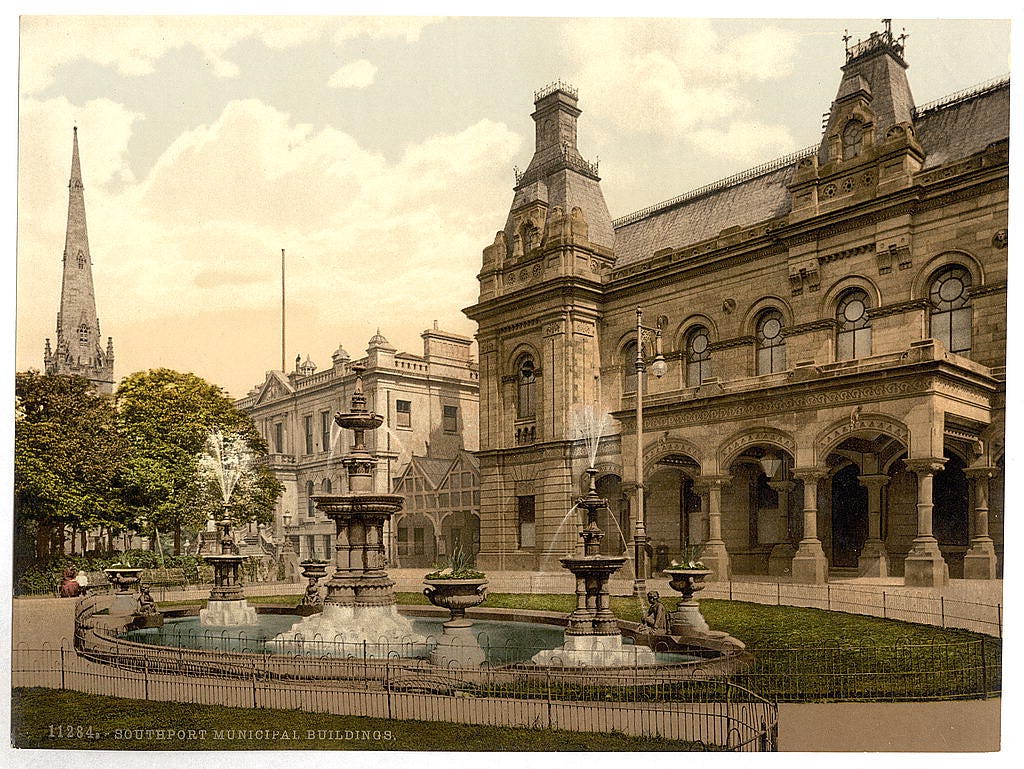From Staffordshire potter to Liverpool detective
George Marsh left the Midlands to find success as a police, and subsquently private, detective
Liverpool's Chief Detective Inspector George Marsh received a splendid send-off when he retired from the city's police force in 1893. He had served 30 years, and so would benefit from a healthy pension; but he also received a mass farewell from the magistrates and officials at the police court he had attended for many years, and was complimented on the 'efficiency of the services he had rendered'. His retirement was so notable that it made the pages of the local newspapers that September.
George was 58 when he retired, and not ready to sit in front of the fire in his slippers. Within months of his retirement from the police, he had established the Southport and Liverpool Private Detective Agency. The Liverpool in the name was a recognition of his knowledge of the city, gained through his police career, and the likelihood that, as a major urban centre, there would be a good bit of work to be had there. Southport was included because after he retired, with a brief spell in Formby, George moved there.
Josiah Wedgwood, famous son of Burslem
George was a long-term detective, having worked in the Liverpool area for decades. Yet he came from a geographic area famous for a particular industry, one which he had initially worked in. He was from Burslem, Stoke-on-Trent, a centre for the pottery industry. His father, Joseph Marsh, was a local man who worked as a potter, specialising in making dishes. George, understandably, followed his father into the industry, being apprenticed to a potter by his mid teens. Yet at some point between the ages of 15 and 25, George decided that pottery was not his vocation.
Although he was said in 1893 to have been in the Liverpool police for 30 years, he had actually been in it for at least 32, for at some point between 1856 - when he married Emma Dean in Burslem - and 1861, George had moved from Burslem to Liverpool, where he was working as a policeman and lodging with one of his colleagues, Peter Bibby, together with Peter's wife Jane.
His wife was not with him at this point, although it's possible she stayed in Burslem until her husband was settled, and then went to join him. By 1871, she had relocated to Liverpool, and she and George were living on Mason Street. George was listed as a detective police officer, but the couple were not affluent, and had to take in two lodgers to help with the household finances. They would still be doing this ten years later, despite George having reached the status of detective inspector by this point.
By the time George was listed as chief detective inspector in 1891, things had also changed domestically. The 1891 census records him as having a wife named Emma - but this was not the wife he had met back in his hometown. That Emma had died, and on 9 December 1886, her widower had married another Emma. This was Emma Monks, nee Holt, a woman from Warrington who had herself been widowed, leaving her with a son to look after. The couple married in Salford, but then returned to Liverpool, where Emma gave birth to their son, also called George, in 1888. By 1891, they were living in Walton on the Hill, and rather than have lodgers, they were now able to employ a servant.
Southport, at the time the Marshes were living there
In 1893, George retired, and the family moved to Southport, where George ran his detective agency. This had some longevity, for George was still operating the agency eight years later, in 1901. However, it was a relatively short post-police career. In early 1911, George Marsh died. His widow, Emma, was recorded shortly after, in the census, working as a housekeeper for a company, while son George was working as a solicitor's clerk. Although they still had a single servant, they now also had three boarders, presumably to help replace George's income, but this in itself would be a short term situation, as three years after her husband died, Emma too died in Southport.
George Marsh had come a long way from the Potteries of Staffordshire, creating a new life for himself in the Liverpool area. His Liverpool and Southport Private Detective Agency (he switched the placement of places around in the agency name according to where he was advertising) had offices in both locations; in Southport, he used his home address, but he also had an office at 129 Dale Street in Liverpool. It had some longevity, helped by his fame locally as well as his three decades of experiences in policing. He utilised this in his advertising, always stressing that his cases were 'conducted by George Marsh, late Chief Detective Inspector, Liverpool Police'.
He was very much an adopted Liverpudlian, immersing himself in the life of the city, and his son being born there. His early life had seemed proscribed by his location, and he was expected to continue working as a potter like his father; instead, he worked as a police detective and then as a private detective, working in a very different setting and in a very different line of work.





